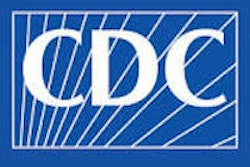
Most Americans are unaware that the Patient Protection and Affordable Care Act (ACA) includes children's dental services, according to a survey by the Children's Dental Health Project (CDHP). Some 33% of adults report that someone in the family has a toothache or other dental problem, but many have delayed going to the dentist because of cost.
Findings from the survey:
- Nearly 4 of 10 adults (39%) report delaying a dental visit during the past year because of expected out-of-pocket costs.
- Many don't realize that children's dental coverage can be purchased through state marketplaces. Some 42% knew that children's dental benefits were included in the ACA, but only 22% knew that children up to age 19 are the only group included in the law's essential health benefits.
“So many people are not aware that the ACA creates a pathway to dental coverage for kids and teens.”
director
The survey of 1,000 adults was performed by Wakefield Research.
"It concerns us that so many people are not aware that the ACA creates a pathway to dental coverage for kids and teens," said Patrice Pascual, CDHP executive director. "Those with coverage are more likely to get dental care, and prevention is cost-effective."
Nearly half of all 5-year-olds and two-thirds of teens have had caries, which is largely preventable. The impact of caries can affect children's overall health and their ability to eat, sleep, socialize, and learn, the group noted. Researchers estimated that California children missed a total of 874,000 school days due to dental problems in 2007.
Americans made about 882,000 visits to hospital emergency rooms in 2010 for preventable dental conditions, according to U.S. government estimates. Nearly 48,000 of these dental-related emergency trips involved children.
Under the ACA, children's dental coverage must be offered to families buying health insurance in the new state-based and federally facilitated marketplaces. Depending on the state, pediatric dental benefits may be offered through one of the following: a qualified health plan (QHP) that includes dental coverage, or a standalone dental plan purchased in conjunction with a QHP.
Unless a state requires it, buying separate pediatric dental coverage is not a required in the marketplaces. However, outside the marketplaces, enrollees must purchase children's dental coverage through their health plan or give "reasonable assurance" that they have purchased it through a marketplace-certified, standalone dental plan, the CDHP said.
The survey is consistent with other polls revealing significant gaps in the public's knowledge of the ACA. For example, the Kaiser Family Foundation recently reported that 46% of uninsured Americans were unaware that the law provides financial assistance to lower-income people to help them buy insurance.



















